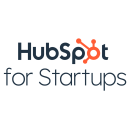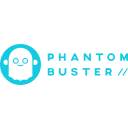ZoomInfo vs Cognism: Choosing the ideal sales intelligence platform
- 01ZoomInfo vs Cognism: overview
- 02What's the difference between ZoomInfo and Cognism?
- 03ZoomInfo pros and cons
- 04Cognism pros and cons
- 05ZoomInfo compared to Cognism
- 06Cognism compared to ZoomInfo
- 07Features comparison
- 08ZoomInfo vs Cognism: Which is the best for your business?
- 09Promotions on Prospecting software
- 10Alternatives to ZoomInfo & Cognism
A robust B2B sales and marketing intelligence solution plays a pivotal role in enhancing your outreach efforts, streamlining lead generation, and optimizing your sales strategies. Two prominent players in this space, ZoomInfo and Cognism, offer distinct features and capabilities that can significantly impact your business outcomes.
This article aims to provide a comprehensive comparison between ZoomInfo and Cognism, focusing on their respective categories of B2B data and sales intelligence. While both platforms are designed to empower your sales and marketing efforts, understanding the nuances of their offerings is crucial in making an informed decision for your organization. Join us as we dive deeper into the world of B2B data and sales intelligence with ZoomInfo vs Cognism.
ZoomInfo vs Cognism: overview
ZoomInfo and Cognism are prominent players in the realm of B2B sales and marketing intelligence, each offering distinctive strengths tailored to specific business requirements.
ZoomInfo is renowned for its extensive B2B data repository and its comprehensive suite of sales intelligence tools. It stands out as a go-to resource for organizations seeking to access accurate contact information, firmographic data, and account-based insights. Cognism, on the other hand, specializes in providing advanced sales acceleration and lead generation solutions. Its platform combines B2B data enrichment with sales engagement features, making it an ideal choice for businesses looking to boost their outbound sales efforts.
When deciding between ZoomInfo and Cognism, it's crucial to consider your specific business goals and the nature of your sales and marketing strategies. If you prioritize access to high-quality B2B data and account-based insights, ZoomInfo may be the better fit. However, if your focus is on optimizing outbound sales and lead generation processes through automation, Cognism could be the more suitable choice.
What's the difference between ZoomInfo and Cognism?


ZoomInfo and Cognism are two leading players in the B2B sales and marketing intelligence space, each offering distinct features and capabilities that cater to specific business needs. One critical difference between these platforms lies in their focus and core functionalities.
ZoomInfo is primarily known for its extensive B2B data and contact information database. It excels in providing high-quality, up-to-date data that helps businesses identify and target potential prospects effectively. ZoomInfo's suite of sales intelligence tools empowers sales and marketing teams to access accurate firmographic data, account insights, and contact information. It's a valuable resource for lead generation, sales prospecting, and account-based marketing.
Cognism, on the other hand, places a strong emphasis on sales acceleration and lead generation. While it also offers B2B data enrichment services, Cognism stands out for its advanced sales engagement features. The platform includes sales automation, cadence tools, and a powerful outbound lead generation engine. Cognism is designed to help businesses streamline their outbound sales efforts, improve sales conversion rates, and optimize their sales processes.
When deciding between ZoomInfo and Cognism, it's essential to consider your organization's specific goals and strategies. If your primary focus is on accessing comprehensive B2B data and intelligence to support your sales and marketing efforts, ZoomInfo may be the better choice. On the other hand, if you're looking to enhance your outbound sales, automate your outreach, and improve lead generation, Cognism might be the more suitable option.
ZoomInfo pros and cons
What are the advantages of ZoomInfo?
- Extensive B2B data: ZoomInfo boasts one of the largest databases of B2B contacts and company information, providing users with access to a vast amount of data to support their sales and marketing efforts.
- Accurate and up-to-date information: ZoomInfo is known for its commitment to data accuracy. It regularly updates its database to ensure that users have access to current and reliable information about their target prospects and companies.
- Advanced search and filtering: ZoomInfo offers powerful search and filtering capabilities, allowing users to narrow down their target audience based on various criteria such as industry, company size, job title, and more.
- Integration options: ZoomInfo integrates seamlessly with popular CRM platforms, marketing automation tools, and other sales and marketing software, making it easy for users to incorporate B2B data into their existing workflows.
- Sales and marketing insights: ZoomInfo provides valuable insights and analytics to help users make informed decisions, identify trends, and refine their lead generation and outreach strategies.
What are the disadvantages of ZoomInfo?
- Pricing: ZoomInfo can be relatively expensive, especially for small businesses or startups. The cost may be a barrier for organizations with limited budgets.
- Learning curve: Due to its extensive feature set, ZoomInfo may have a steeper learning curve for new users who need time to become proficient in using all of its functionalities effectively.
- Data coverage variability: While ZoomInfo's data coverage is vast, it may not be equally comprehensive for all regions or industries, which could limit its usefulness for some users.
- Contact limits: Some ZoomInfo subscription plans have limitations on the number of contacts you can access or download per month, which could be restrictive for high-volume users.
- Competitive landscape: ZoomInfo faces competition from other B2B data providers, which means users may need to assess different options to find the best fit for their specific needs and budget.
Compare ZoomInfo to other tools
Cognism pros and cons
What are the advantages of Cognism?
- Comprehensive B2B data: Cognism offers a robust database of B2B contacts and company information, enabling users to access accurate and up-to-date data for their sales and marketing efforts.
- Sales automation: Cognism provides advanced sales automation features, including email sequencing, cadence management, and follow-up reminders, which can help streamline outbound sales processes.
- Lead generation engine: Cognism's lead generation engine allows users to generate highly targeted leads based on specific criteria, such as industry, job title, and company size, making it easier to identify potential prospects.
- Integration capabilities: Cognism integrates with popular CRM systems and other sales and marketing tools, facilitating the seamless incorporation of data and automation into existing workflows.
- Personalization and engagement: Cognism's tools enable users to personalize their outreach and engage with prospects more effectively, increasing the likelihood of successful conversions.
What are the disadvantages of Cognism?
- Cost: Cognism's pricing may be relatively high for some businesses, particularly smaller ones or startups. The expense could be a limiting factor for organizations with budget constraints.
- Learning curve: Like many comprehensive sales automation platforms, Cognism may have a learning curve, and it may take time for users to fully harness its features and capabilities.
- Data coverage: While Cognism offers a wide range of data, its coverage may vary by region and industry, potentially limiting its usefulness for some users with specific targeting needs.
- Limited marketing automation: Cognism primarily focuses on sales automation and lead generation, so it may not be as feature-rich in terms of marketing automation capabilities compared to specialized marketing automation platforms.
- Competition: Cognism faces competition from other sales acceleration and lead generation tools, so users may need to evaluate multiple options to determine the best fit for their particular requirements and budget.
ZoomInfo compared to Cognism
ZoomInfo and Cognism are prominent players in the B2B sales and marketing intelligence space. ZoomInfo stands out for its extensive database of B2B contacts and accurate data, offering valuable insights to enhance lead generation and sales strategies.
In contrast, Cognism specializes in sales acceleration and lead generation, with advanced automation features. ZoomInfo's strength lies in its data accuracy and comprehensive B2B information, making it ideal for data-driven sales and marketing efforts. On the other hand, Cognism excels in automating outbound sales processes.
Is ZoomInfo better than Cognism?
Determining whether ZoomInfo is better than Cognism depends on your specific business requirements. ZoomInfo is known for its extensive B2B database and accurate data, making it a valuable asset for lead generation and sales prospecting. Conversely, Cognism excels in sales acceleration and automation, streamlining outbound sales efforts.
The choice hinges on priorities; ZoomInfo for data-driven strategies and account insights, while Cognism for automating sales processes. Consider your organization's goals and needs when deciding between the two, as both platforms offer distinct strengths in the realm of B2B sales and marketing intelligence.
What is ZoomInfo best used for?
ZoomInfo is best used for enhancing B2B sales and marketing efforts. Its extensive database of accurate B2B contact and company information empowers businesses to identify and target potential prospects effectively. Sales teams benefit from valuable insights and lead generation opportunities, streamlining their sales processes and improving conversion rates.
ZoomInfo's strength lies in providing up-to-date data, allowing organizations to make informed decisions, identify trends, and refine their outreach strategies. Whether it's lead generation, account-based marketing, or sales prospecting, ZoomInfo is a valuable tool for businesses looking to leverage data-driven approaches in the competitive B2B landscape.
Can ZoomInfo replace Cognism?
Whether ZoomInfo can replace Cognism depends on your specific needs and priorities. ZoomInfo excels in providing extensive B2B data and accurate contact information, making it ideal for data-driven sales and marketing efforts. However, Cognism specializes in sales acceleration and lead generation, offering advanced automation features.
If your primary goal is data enrichment and account insights, ZoomInfo may suffice. However, if you require robust sales automation and outbound prospecting, Cognism may be the better choice. Ultimately, the decision should align with your organization's unique objectives and strategies in the realm of B2B sales and marketing intelligence.
Is ZoomInfo cheaper than Cognism?
The relative cost of ZoomInfo compared to Cognism varies based on several factors, including the specific subscription plans, usage, and the size of your organization. Generally, ZoomInfo's pricing can be relatively high, potentially posing budget constraints for smaller businesses or startups.
Cognism's pricing structure may also vary but could be competitive in comparison. It's essential to evaluate both platforms' pricing models, features, and suitability for your organization's needs to determine whether ZoomInfo is more cost-effective than Cognism. The choice should consider your budget and the value each platform provides in the context of your B2B sales and marketing strategies.
Is there a better Prospecting software than ZoomInfo?
While ZoomInfo offers a comprehensive B2B data solution, it's prudent to explore alternatives to ensure you select the best fit for your specific requirements. Some noteworthy alternatives in the B2B data and sales intelligence landscape include Apollo.io, Crunchbase, LinkedIn Sales Navigator, and Clearbit.
The choice of the ideal B2B data provider hinges on your unique business goals, data accuracy requirements, and integration capabilities. ZoomInfo excels in certain areas, but evaluating these alternatives can provide valuable insights and help you make an informed decision that best aligns with your specific B2B data and sales intelligence needs.
Cognism compared to ZoomInfo
Cognism and ZoomInfo are prominent players in the B2B sales and marketing intelligence arena, each with distinct strengths. ZoomInfo is renowned for its extensive B2B data repository and comprehensive suite of sales intelligence tools. It empowers users with accurate contact information, firmographic data, and account-based insights, making it a valuable asset for lead generation and sales prospecting.
On the other hand, Cognism specializes in sales acceleration and lead generation. Its platform combines B2B data enrichment with sales engagement features, streamlining outbound sales efforts and improving conversion rates. The choice between Cognism and ZoomInfo hinges on specific business goals and needs in the B2B market.
Is Cognism better than ZoomInfo?
Determining whether Cognism is better than ZoomInfo depends on your specific business objectives and priorities. Cognism excels in sales acceleration and lead generation with its advanced automation features, making it a valuable tool for streamlining outbound sales processes. In contrast, ZoomInfo specializes in providing extensive B2B data and accurate contact information, ideal for data-driven sales and marketing efforts.
The choice between Cognism and ZoomInfo should align with your organization's unique needs. If you prioritize automation and outbound prospecting, Cognism may be the better choice. However, if your focus is on data enrichment and account insights, ZoomInfo could be the preferred option.
What is Cognism best used for?
Cognism is best used for optimizing B2B sales processes and lead generation efforts. With its advanced sales acceleration and automation features, Cognism excels at streamlining outbound sales activities, improving efficiency, and increasing conversion rates. It is particularly beneficial for organizations looking to scale their outbound prospecting efforts and enhance their sales team's productivity.
Cognism's capabilities in data enrichment, sales engagement, and lead scoring make it an ideal tool for businesses seeking to identify and engage with potential prospects more effectively. Overall, Cognism is well-suited for those who prioritize sales acceleration and improving outbound sales results in the competitive B2B landscape.
Can Cognism replace ZoomInfo?
Whether Cognism can replace ZoomInfo depends on your specific business needs and objectives. Cognism excels in sales acceleration, lead generation, and automation, making it an ideal choice for organizations looking to streamline outbound sales efforts. However, ZoomInfo specializes in providing extensive B2B data and accurate contact information, which is valuable for data-driven sales and marketing strategies.
The decision to replace ZoomInfo with Cognism should align with your unique priorities. If your focus is on improving outbound sales processes and lead generation, Cognism may be a suitable replacement. However, if data enrichment and account insights are your primary requirements, ZoomInfo might remain a valuable resource alongside Cognism.
Is Cognism cheaper than ZoomInfo?
The relative cost of Cognism compared to ZoomInfo can vary depending on your specific usage, subscription plans, and organization's size. Generally, Cognism's pricing may be competitive and potentially more budget-friendly for some businesses, particularly smaller ones or startups.
ZoomInfo, on the other hand, is known for its comprehensive B2B data and could have a higher price point. It's essential to carefully evaluate the pricing structures, features, and suitability for your organization's needs when determining whether Cognism is more cost-effective than ZoomInfo. The choice should align with your budget constraints and the value each platform provides for your B2B sales and marketing strategies.
Is there a better Prospecting software than Cognism?
While Cognism excels in sales acceleration and lead generation, exploring alternative tools is essential to ensure you make the best choice for your specific needs. Several noteworthy alternatives in the sales acceleration and B2B lead generation landscape include ZoomInfo, DiscoverOrg, LinkedIn, and RocketReach.
The selection of the ideal sales acceleration and lead generation platform depends on your unique business goals, integration capabilities, and automation needs. Cognism offers valuable features, but evaluating these alternatives can provide insights and assist you in making an informed decision that best aligns with your specific sales acceleration and lead generation objectives.
Features comparison
ZoomInfo's Extensive Integrations Outshine Cognism's Connectivity

Moving onto integration capabilities, both ZoomInfo and Cognism offer opportunities to connect with common CRM and Marketing systems. However, ZoomInfo holds a notable advantage. ZoomInfo boasts a broader array of native integrations, including popular platforms like Salesforce, Marketo, Microsoft Dynamics, and various other essential business tools. This extensive integration support ensures that ZoomInfo smoothly integrates into existing workflows, facilitating seamless data flow and enhancing productivity.
For example, the Salesforce integration allows users to access ZoomInfo's rich B2B data directly within their Salesforce environment, streamlining lead generation and sales processes. While Cognism also offers integrations, its scope is not as extensive as ZoomInfo's, potentially limiting compatibility with specific business ecosystems.
ZoomInfo's Comprehensive B2B Data Dominates Cognism's Offerings

When it comes to B2B data, ZoomInfo delivers an unparalleled advantage. It provides access to an extensive database, including over 600 million professional profiles, a repository of more than 135 million verified telephone numbers, and a treasure trove of 55 million purchase signals. This wealth of data empowers B2B sales and marketing professionals with the tools they need to identify, target, and connect with potential prospects effectively.
In contrast, Cognism offers contact and company data, but it does not provide specific details regarding the scale or quality of its B2B data. The substantial gap in data coverage and insights makes ZoomInfo the go-to choice for businesses seeking a competitive edge in their B2B sales endeavors.
ZoomInfo's Enhanced Prospect Identification Surpasses Cognism's Data Offerings

When comparing ZoomInfo and Cognism in terms of prospect identification, ZoomInfo emerges as the frontrunner. While Cognism primarily offers Contact Data Availability, ZoomInfo provides a more comprehensive solution. ZoomInfo's B2B sales prospecting tool harnesses the power of data-driven insights and buying signals to identify companies that are actively in the market to make purchasing decisions.
For instance, ZoomInfo's platform can not only provide contact information but also offer insights into a company's recent activities, technology stack, hiring trends, and more. This depth of information enables users to target and connect with their ideal customers more effectively, giving them a distinct advantage in the competitive B2B landscape.
ZoomInfo and Cognism are Equally Efficient for Data Accuracy

Both ZoomInfo and Cognism prioritize data accuracy. They prioritize the reliability of contact and company data, recognizing its paramount importance for effective B2B sales and marketing. Both platforms incorporate built-in features to verify and maintain data accuracy, guaranteeing that users have access to the most trustworthy information available.
For instance, they regularly update their databases to reflect changes in the business landscape, ensuring that contact details, firmographic data, and account insights remain current. This dedication to data accuracy empowers users with the confidence that they are making informed decisions and targeting the right prospects, ultimately enhancing their success in the competitive B2B arena.
ZoomInfo's Robust Data Security Trumps Cognism's Offerings

When it comes to data security, ZoomInfo sets itself apart as a leader. It's not just about having secure databases but also the capability to comply with stringent global and national privacy regulations. ZoomInfo takes data security seriously and stands out by being CCPA and GDPR compliant, two of the most rigorous data protection regulations globally.
Moreover, ZoomInfo holds both ISO 27001 and ISO 27701 certifications, demonstrating a level of commitment to data security that surpasses many competitors, including Cognism. These certifications validate ZoomInfo's adherence to internationally recognized data security standards, providing users with confidence in the protection of their sensitive information.
ZoomInfo's OperationsOS Elevates Data Management Beyond Cognism's Offerings

In the realm of data cleaning and enrichment, both ZoomInfo and Cognism offer valuable features. However, ZoomInfo takes the lead with its highly automated data management system known as OperationsOS. OperationsOS not only efficiently cleanses customer data but also performs advanced functions like merging de-duplicated data and accurately matching leads with the right accounts. This level of automation not only saves time but also ensures that your data is more actionable and precise.
For instance, if you have duplicate leads or incomplete data in your CRM, OperationsOS can help consolidate and enrich the information, resulting in a more robust and effective database. In contrast, Cognism's data cleaning and enrichment feature, while useful, may not provide the same level of sophistication and automation as ZoomInfo's OperationsOS.
ZoomInfo's User-Friendly Interface Triumphs Over Cognism's Complexity

When comparing the user experience between ZoomInfo and Cognism, ZoomInfo takes the lead in terms of ease-of-use. Its intuitive interface and clean design make it highly approachable, even for those new to SaaS software. ZoomInfo goes the extra mile with onboarding tutorials and detailed guidelines, simplifying the learning curve significantly. For instance, when searching for B2B data, users can easily filter and find specific information, such as job titles, industries, or company sizes.
In contrast, Cognism offers a robust platform with multiple features, but some users may find its interface slightly more complex to navigate, especially if they lack prior experience with similar tools.
Subscribe to our newsletters.
No FOMO here. Stay up-to-date on all the latest deals and news with our monthly newsletter straight to your inbox like 123,000+ entrepreneurs (+ Get 10% off on on our Premium Membership!)
ZoomInfo vs Cognism: Which is the best for your business?
ZoomInfo is the best tool for you if:
- You prioritize extensive B2B data with access to over 600 million professional profiles for precise targeting.
- Your sales strategy relies on accurate contact information and verified telephone numbers.
- You seek valuable purchase signals to enhance your lead generation efforts.
- Data quality and coverage are critical for your B2B sales success.
- You require a comprehensive tool to identify and connect with potential prospects effectively.
Cognism is the best tool for you if:
- You aim to streamline outbound sales processes and boost sales team productivity through automation.
- Lead generation and targeted outreach are top priorities.
- You need a platform with data enrichment capabilities to enhance prospect profiles.
- You seek advanced sales engagement features like email sequencing and cadence management.
- Your focus is on improving conversion rates and increasing the efficiency of your sales efforts.
Alternatives to ZoomInfo & Cognism
Promotions on Prospecting software
Start saving on the best SaaS with Secret.
Secret has already helped tens of thousands of startups save millions on the best SaaS like ZoomInfo, Cognism & many more. Join Secret now to buy software the smart way.











